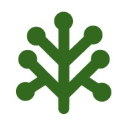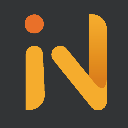Checklist of 10 questions to ask yourself when choosing a CRM tailored to your needs
Which CRM software should you choose? Our answer: your CRM software is the one that best meets your needs. Careful customer relationship management has a positive impact on sales growth and the image of your company or organisation.
Appvizer brings you a checklist with 10 questions to ask yourself before choosing your CRM, the different types of CRM depending on your needs, 8 tips to avoid making mistakes that cost your company dearly. What's more, we recommend 9 tools through a comparison of CRM solutions in SaaS mode.
10 essential questions to ask yourself before choosing a CRM solution
1- What are the company's needs in the short and long term?
Before rushing headlong into choosing a CRM, ask yourself one simple question: what do you actually want from this tool, now and in the future?
👉 Short-term objectives mainly involve resolving operational emergencies. A CRM should therefore help you to:
- Centralise customer data for better visibility,
- Automate repetitive tasks such as reminders and follow-ups,
- Improve collaboration between teams, by sharing information in real time.
👉 In the long term, a CRM must enable you to anticipate growth and change. So choose a CRM that:
- Adapts to the evolution of your business, whether in terms of data volume or process complexity,
- Offers modular functionality, so you can integrate new tools or services,
- Enables in-depth data analysis, so you can make informed strategic decisions.
2- Which features are mandatory, and which are bonus features?
☝️Certaines features are non-negotiable if you want a tool that does the job, without the headaches.
Firstly, centralised contact management is essential if you want to have access to relevant customer records: name, email address, purchase history, preferences, etc.
Tracking interactions is essential if you want to avoid the "oh dear, I forgot to call him back! Dashboards and reporting will be necessary for this purpose. Otherwise, how will you know if you're making progress?
Next, for your CRM to be deployed smoothly, it is essential that it can connect with your existing tools.
Finally, you'll need a visual sales pipeline that displays your opportunities clearly, so you can track them more effectively and close deals more efficiently.
✅ In addition, some CRMs offer special features that can make your business life smoother - and which we highly recommend.
- For example, fine-tuned contact segmentation means you can't send the same message to Granny as to Total's marketing director.
- There are also mobile functions so you can consult your customer files between two trains or from the comfort of your office.
- Automatic lead scoring is also useful for saving time by contacting leads with high purchasing potential, and avoiding pestering those who are not yet mature.
- What's more, synchronisation with social networks can be very advantageous for customers who are active on LinkedIn or TikTok.
- Advanced personalisation makes all the difference to your conversions, offering custom fields, personalised workflows and labels galore.
3- Is the company aiming for personalised or standardised communication with its customers?
If your aim is to strengthen customer commitment and loyalty while increasing conversion rates, then opt for personalised communication. It allows you to respond to the specific expectations of each customer.
By using an appropriate CRM, you can segment your customer base, analyse buying behaviour and propose tailor-made offers.
On the other hand, if your priority is faster implementation and simpler management, standardised communication is more appropriate. It is suitable for companies with limited resources or well-established processes. In this case, your CRM needs to be affordable and equipped with dashboards and integrations with your existing tools.
4- What is the company's positioning and what is its perceived value to its target audience?
Your positioning influences the type of customer relationship you need to maintain... and therefore the type of CRM you need to adopt. For example, an ultra-automated tool will not have the same impact for a top-of-the-range brand as for a discount e-tailer.
So sum up your promise, align it with your CRM expectations and select the CRM that reflects your brand image.
To help you choose a CRM that suits your business, we suggest below the types of CRM you should consider according to your situation.
5- What are your target audience's real needs?
Before configuring sales tunnels and automatic reminders, ask yourself: are your customers looking for a quick response? Do they want personalised follow-up? Do they need transparency, simplicity, or autonomy?
💡 A little tip: to find out what your target audience is looking for, base your answers on :
- customer feedback
- surveys
- behavioural data.
6- What language(s) do your users speak?
The language of your team, i.e. the people who will be using the CRM on a daily basis, is very important when choosing a CRM tool. If they only speak French, software available only in English will pose a problem. Find out about the language(s) required and make sure you choose a CRM that offers a multilingual platform.
7- Do you need scalable software?
Today you manage 200 contacts. Tomorrow, perhaps 2,000. And the day after that? A CRM needs to keep pace with your growth. Rigid software won't bother you at first, but if your business grows quickly, this tool will hold you back.
On the other hand, a scalable CRM allows you to add users without any headaches and adapts its functionalities to your new needs.
8- Who is the project manager for CRM implementation and operation?
From the outset, appoint a project manager, or even a team, who will be responsible for the deployment and optimised use of the tool. Without a clear project manager, CRM remains an unused tool.
Ideally, you should choose someone who is organised, a good teacher and who is close to the field. You don't need an IT expert, just someone who understands your objectives, and who will be able to make the link between the tool and people.
9- What is your budget?
CRM software isn't magically free, and even the freemium versions end up costing you... in time and frustration. So set yourself a realistic budget before comparing tools by asking yourself:
- How much can you invest per month or per year?
- Do you have any hidden costs (training, migration, maintenance)?
- Is the return on investment measurable in the short or medium term?
An expensive CRM that is well used will always yield a higher return than a free tool that is abandoned. So analyse the value for money of each CRM software package, keeping your budget in mind.
10- What commitments and constraints does installing a CRM entail?
Installing a CRM is not just a matter of pressing "Next" until you win. It's a real undertaking, requiring time, energy and often a good dose of internal diplomacy. Between :
- configuration
- data migration
- integration with existing tools
- team training, etc.
... allow several weeks for everything to run smoothly. And that's just the beginning.
The commitment is also human: without user support and buy-in, there's a real risk that your CRM will sleep in a corner. Add to that maintenance, updates, possible version upgrades... and the little bugs that pop up when you least expect them.
☝️ And don't forget to check the contractual terms and conditions: some suppliers impose a commitment of 12 months or more.
Identify your situation using these case studies
Here are a few examples to help you select a CRM software package. How do you go about it? Read, identify the needs of Decathlon, Blablacar or Médecins Sans Frontières that are similar to yours and test their choice.
👉 Accor uses Salesforce to centralise its customer data and optimise its user experience on a global scale. The company opted for this solution to support its digital transformation, simplifying the management of its customer interactions while promoting a personalised approach through a unified system.
👉 Planity has adopted Zoho CRM to structure its customer relations and automate its marketing campaigns. The choice fell on a flexible tool capable of supporting strong growth and an international organisation. The seamless integration with Zoho Billing and Zoho Subscriptions enabled the team to increase productivity, particularly by automating the management of recurring payments.
👉 McDonald's has adopted monday.com to structure its marketing and operational projects on a global scale. The choice fell on a flexible platform for coordinating teams remotely, automating repetitive tasks and centralising information.
Identify the type of CRM that suits you best
| Types of CRM | Definition | Suitable situation | Advantages | Limitations |
|---|---|---|---|---|
| Traditional CRM (operational) | Day-to-day management of sales, customer support and after-sales service. | Day-to-day organisation of sales and customer support | Centralisation, simplicity | Limited marketing functions |
| Marketing CRM | Tools to automate and personalise marketing campaigns. | Campaign automation and personalisation | Segmentation, automation | Less suitable for operational use |
| Social CRM | Management of customer interactions via social networks. | Management via social networks | Real-time engagement | Multi-channel complexity |
| Analytical CRM | Analysis of customer data to improve decision-making. | Data analysis and decision-making | Powerful dashboards | Analytical skills required |
| Strategic CRM | Tool to help define long-term customer strategies. | Long-term customer strategy | Global vision, alignment | Less operational |
| Mobile CRM (mCRM) | CRM accessible via mobile for teams on the move. | Teams on the move | Accessibility, responsiveness | Limited functionality |
| XRM (Extended RM) | Extended management of relationships with customers, partners and suppliers. | Extended relationship management (customers, suppliers) | Global centralisation | Complexity, high cost |
| eCRM (Electronic CRM) | CRM using digital channels for customer relations (email, web). | Digital multi-channel management | Flexibility, modernity | Cost, dependence on data |
| Predictive CRM | Use of data and AI to anticipate customer needs. | Anticipation of customer behaviour | Advanced personalisation | Need for big data and power |
| Dedicated/sector-specific CRM | CRM designed for the specific needs of a business sector. | Specific sectors (health, real estate, etc.) | Targeted, time-saving functions | Less flexible |
| Invoicing CRM | CRM with integrated management of quotes, invoices and payments. | Integrated financial management | Automation of quotes and invoices | Limited to financial aspects |
| Prospecting CRM (PRM) | Tools focused on prospect conversion and follow-up. | Optimisation of lead conversion | Precise lead tracking | Not well suited to building customer loyalty |
| Onboarding CRM | Personalised management of customer integration and loyalty. | Integration and retention of new customers | Personalisation and retention | Less global management oriented |
8 tips for choosing your CRM tool
A Customer Relationship Management ( CRM ) tool should enable small and medium-sized businesses to centralise and analyse customer data in order to increase customer satisfaction and build loyalty.
Let's take a closer look at the selection criteria to guide you in your choice of CRM software:
Tip 1: Identify your needs
To make the right choice of CRM software, it's important to understand your organisation's needs and to draw up a set of specifications aimed at identifying the basic functions that are essential.
If you can afford to have your own software developed, prioritise the basic functions that it must have and that will be of real benefit to your business.
The geolocation function or invoice printing may not be necessary for the use you intend to make of your software. There's no need to buy software that's too cumbersome and complicated, which could scare off your staff.
Tip 2: Choose an ergonomic interface
It should be easy to get to grips with, and the interface should be practical and pleasant. There's nothing worse than working with a dull software package that requires a lot of manipulation.
You need to bear in mind that users of the software are going to spend a lot of time on it, and choose software that is ergonomic.
Many may give up using the software if they find it unattractive and difficult to use.
Tip 3: Check synchronisation and data transmission
Pay close attention to the synchronisation and data transmission capabilities offered by the software. It's annoying not to have the right information when you're dealing with a customer.
Documents must be updated automatically and continuously so that all employees have the same level of information.
The right version of a contract or invoice should always be available to sales staff when dealing with a demanding customer.
Tip 4: Assess the software's ability to evolve
If the customer relationship management software you have chosen has no capacity to evolve, you risk being penalised in the months or years to come.
It is important that you have room to manoeuvre so that you can adapt the functionality. As you use the software, you may discover that a function is missing, or that one is never used or used very little.
It's important to be able to readjust the settings and functions of your CRM software so that it continues to meet your expectations.
Tip 5: Study accessibility and the media used
Offline or fully connected mode? How will your employees need to use the software? Ask yourself about accessibility so that you can optimise the actions carried out with the software.
Also consider whether it can be accessed on a tablet or smartphone, because your company's sales staff will appreciate being able to access all the information wherever they are.
Whether they're out on a business trip, in the middle of a building site or in a shop, it's vital that everyone can find the data they need at any time.
Tip 6: Secure your exchanges and data
Seek advice from your suppliers to ensure that your data and exchanges with your customers are as secure as possible.
Knowing that one of your files or the contacts entrusted to you by your customers has been hacked is a real blow.
Don't neglect this aspect, especially if your employees connect to unsecured WiFi.
Tip 7: Budget for your software purchase
Whether you opt to buy software locally or pay a monthly subscription fee, you need to estimate the cost of your software over the time you'll be using it.
Don't just look at the attractive price of a one-month subscription, but try to see if it's still worthwhile if you subscribe for a whole year.
Tip 8: Take into account the nature of your business and the type of customer you have
B2B or B2C company? Very small or large accounts? More specialised sector such as education? The software you choose won't necessarily be the same as the company next door.
Don't rely on the advice of an entrepreneur friend if the type of customer and the type of structure are not exactly the same. Here is a comparison of CRM tools to help you decide.
Comparative table of CRM software for VSEs, SMEs and the self-employed
The table below summarises the comparison of SaaS CRM software to be discovered in this article:
1 of 6
 Corymbus |  Initiative CRM |  noCRM |  OSCAR CRM Enseignement Sup' |  Teamleader |  Webmecanik Pipeline - CRM |
|---|---|---|---|---|---|
| For companies with 1 to 50 employees | For companies with 2 to 250 employees | For companies with 1 to 250 employees | For all companies | For companies with 1 to 250 employees | For companies with more than 1 employees |
| See software | See software | See software | See software | See software | See software |
| Learn more about Corymbus | Learn more about Initiative CRM | Learn more about noCRM | Learn more about OSCAR CRM Enseignement Sup' | Learn more about Teamleader | Learn more about Webmecanik Pipeline - CRM |
Axonaut: ERP with an integrated CRM solution
Axonaut is an ERP that successfully combines a CRM with multiple modules.
Data centralisation, access and synchronisation in real time make all the difference compared with ERP systems that are too cumbersome:
- the CRM tool traces the customer journey efficiently, so that the right prospects can be contacted at the right time,
- Centralised data means that quotes and invoices can be generated automatically,
- automated holidays and payslips simplify HR management,
- an administrative management module helps you manage expense claims, mileage allowances and cash flow,
- the project management module helps you to be more productive and organised.
Freelancers, self-employed entrepreneurs, managers of start-ups and SMEs with 50 to 250 employees all have access to a powerful tool that combines business management and customer relationship management in a single interface.
Corymbus, a simple, comprehensive tool for very small businesses and the self-employed
Corymbus is a CRM designed specifically for very small businesses, freelancers and independent consultants, who benefit from a sales and marketing-oriented solution that meets all their needs.
Offered at a low price, the solution is no less comprehensive:
- You can manage your marketing cycle from A to Z from a single interface;
- Get an overview of your business via a summary dashboard;
- You can integrate forms into your website and retrieve contacts directly from your tool;
- Create your quotes and invoices;
- Set up processing sequences to automate recurring scenarios;
- You can import/export Excel data, and connect your CRM to other information systems via API.
The tool is a real must-have for VSEs and the self-employed, who will appreciate the simplicity and clarity of a CRM perfectly tailored to their needs, at an ultra-competitive price. The fact that it is hosted in France and the quality and responsiveness of the customer service are also worth highlighting.

Corymbus
EFFICY CRM: one of the best CRMs for SMEs and ETIs in B2B
You know how important it is to segment your database, especially if you operate in a B2B sector.
EFFICY CRM enables you to sharpen your customer knowledge and score your leads according to your needs and objectives:
- a complete CRM suite including all the effective features for marketing and sales (including project management),
- a multi-channel marketing CRM for improved targeting, including customer support,
- a dedicated Sales module to help you engage new customers through scoring and opportunity management,
- a module for automating B2B lead generation (lead nurturing, behavioural scoring, landing page and automated email scenario),
- a contact management module with action history, collaborative diary, etc.
EFFICY CRM is undeniably a solid CRM tool and a modular solution that will delight SMEs and SMIs (up to 5,000 employees) looking to optimise their B2B customer relationship management.
Initiative CRM: a bespoke, scalable CRM
If you're looking for a tool that's just like you, tailored to your approach to customer relations, to centralise information from your contact database (with real-time history and alerts), Initiative CRM is a very interesting CRM tool.
By combining Sales Intelligence with sales management, it enables :
- fluid, real-time monitoring of customer relations (with performance indicators and target management),
- create quotations, invoices and order forms and send them out with a single click,
- email campaign management, with recipient segmentation, scheduling and statistics,
- use of collaborative tools such as shared diaries, task management, document management and event planning,
- sales process automation (follow-ups, lead and opportunity management, etc.),
- planning and automation of clear, graphical dashboards.
As well as being intuitive and versatile, Initiative CRM has the advantage of adapting to your needs and your development.

Initiative CRM
noCRM.io: for effective prospecting
noCRM.io is CRM software for sales teams, specifically designed to improve your prospecting. It has already convinced over 7,000 users in 80 countries that it can convert more opportunities into customers.
Boost your prospecting thanks to :
- a highly simplified interface for ease of use and optimum efficiency,
- opportunities created simply from a LinkedIn profile or a business card: no need to spend hours filling in forms before you can move on to the next stage. Contact your prospects quickly.
- Synchronisation with salespeople's diaries,
- a global pipeline view to manage opportunities and access history,
- a mobile application for working away from the office, and even offline,
- software that can be customised to suit your processes, your sales pipeline and your teams,
- an affordable price for small businesses: from €9/month/user for the Starter edition.
This tool offers numerous direct integrations, including with the Google suite, Quickbooks, Corporama, Factomos, Xero and others. The connection with Zappier enables integration with over 750 other applications, including Trello, Slack, Asana and MailChimp.

noCRM
OSCAR Campus: the CRM for higher education
When it comes to business CRM, the focus is on OSCAR Campus, a tool specifically designed for higher education professionals.
Thanks to it, you can optimise all your student recruitment and monitoring operations, so as to raise the profile of your institution.
Among other things, this software enables you to:
- centralise all your prospect data in a single interface;
- improve your recruitment and conversion rates by automating your communication activities (emailing, SMS, marketing automation, etc.);
- simplify the process by dematerialising applications;
- monitor your statistics to guarantee the success of your recruitment campaigns;
- keep track of your students so you can build loyalty and increase the number of repeat enrolments;
- consolidate your relations with companies, with a view to placing your students, obtaining donations, etc.
But the possibilities offered by the solution don't stop there. OSCAR Campus :
- also fosters good relations with your prescribers ;
- allows you to create an Alumni database, so that your former students can become true ambassadors for your school.
Finally, take advantage of dedicated support from the publisher, to ensure your CRM project runs smoothly.

OSCAR CRM Enseignement Sup'
Sellsy: comprehensive business management software
Sellsy CRM's wide range of functions cover the entire sales cycle to personalise commercial relationships:
- lead capture with the creation of landing pages,
- prospecting using marketing automation
- prospecting follow-up with the pipeline view and lead scoring,
- an accelerated sales process (quotation, invoice and online payment) with automated recurring invoicing,
- marketing campaigns to build customer loyalty via email or SMS,
- expense control (stock management, expense reports, access to certified accountants).
A freelancer can evolve into a very small business, and a very small business into an SME with 250 employees: Sellsy's modular solution meets these new needs as they arise.
Sellsy is the perfect online CRM for companies that want to supplement their needs as they grow with additional modules (customer support, invoicing, etc.) within the same software suite.
Teamleader: project management integrated with CRM
Teamleader is a simple CRM solution that will appeal to freelancers, small organisations and VSEs with up to 50 employees, thanks to all its collaborative management tools, including :
- a CRM module with crucial functions for customer follow-up, quotations and opportunity management,
- functionalities for organising and working together more effectively (shared diaries, task and call management, planning, time management),
- features to simplify the management of sales activity and invoicing (quotes, invoices, payments),
- dashboards to monitor the performance of sales initiatives and produce reports.
Start-ups in the high-tech sector and web agencies particularly appreciate Teamleader for its ease of use, which saves them time and therefore productivity.

Teamleader
Webmecanik Pipeline: the free, user-friendly CRM
Discover Webmecanik Pipeline, a 100% French CRM (and it's free!) that's particularly intuitive to use. Manage your sales pipeline with ease, thanks to features designed to make you more efficient:
- a dashboard that gives you a clear overview of current opportunities and deals,
- the ability to connect CRM to Webmecanik Automation marketing automation software to create relevant campaigns,
- Collaboration features such as a shared and synchronised sales diary to help you get organised as a team,
- the ability to synchronise CRM with other tools to optimise time and actions,
- centralising customer information in the customer file gives everyone a 360° view at a glance.
There are few free CRMs on the market as comprehensive as Webmecanik Pipeline. You benefit from all its features without having to provide your bank details.

Webmecanik Pipeline - CRM
Don't overturn the entire organisation of the company
Of course, you have to know how to evolve within a company, but this can be done in stages. It's important not to take away all your staff's points of reference. Even if major changes are made, they need to be able to rely on things they already know.
Take into account this period of change, during which you will have to deal with a few malfunctions or slowdowns linked to the software being more or less easy to get to grips with. It may be worth considering whether the software supplier can provide rapid training for your staff.